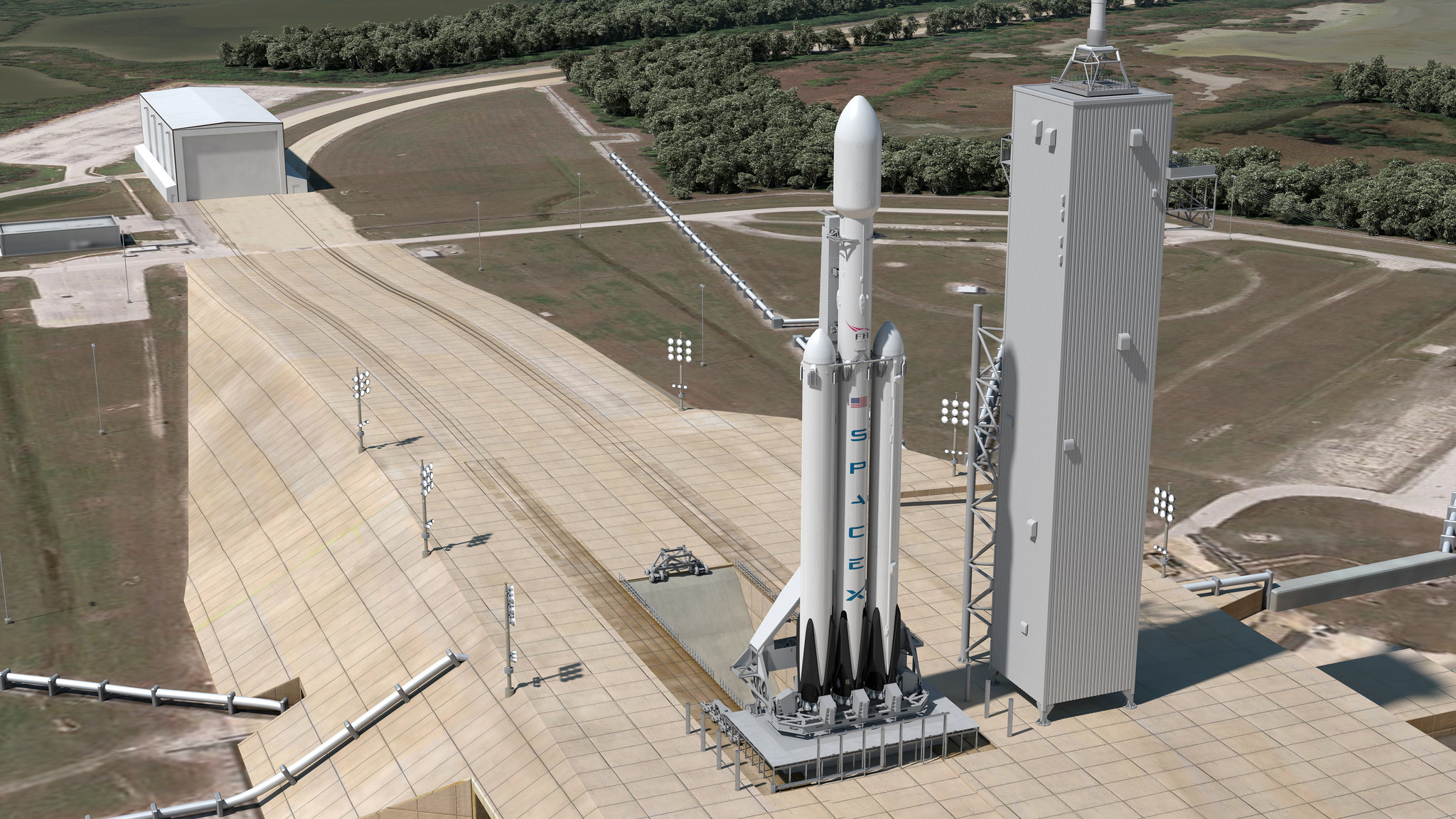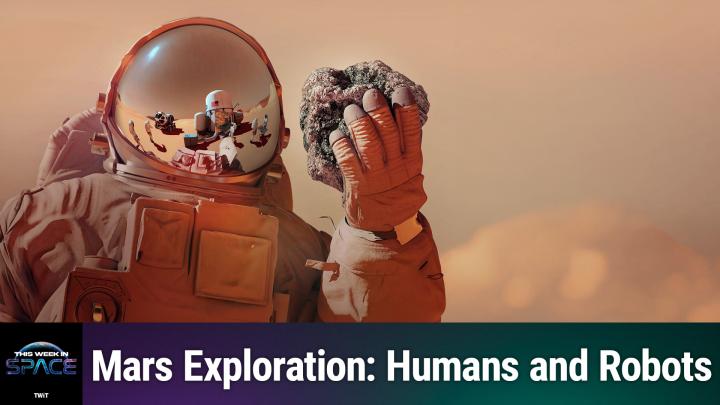Elon Musk Will Launch His Tesla Roadster to Mars on SpaceX's 1st Falcon Heavy Rocket
Breaking space news, the latest updates on rocket launches, skywatching events and more!
You are now subscribed
Your newsletter sign-up was successful
Want to add more newsletters?
It really is Mars or bust for Elon Musk. The billionaire says he's going to launch his own Tesla Roadster on the first test flight of SpaceX's new giant rocket next month, and the car will play David Bowie's "Space Oddity" full blast on the way to Mars (if the rocket doesn't explode during liftoff).
In a pair of Twitter posts Friday night (Dec. 1), Musk said SpaceX's huge new rocket — called the Falcon Heavy — will make its debut in January from the very same NASA launch pad that sent the Apollo 11 astronauts to the moon: Pad 39A at the Kennedy Space Center in Cape Canaveral, Florida.
"Falcon Heavy to launch next month from Apollo 11 pad at the Cape," Musk wrote. "Will have double thrust of next largest rocket. Guaranteed to be exciting, one way or another." [SpaceX's Falcon Heavy Rocket in Images]
So that's great news, right? Falcon Heavy will launch in January. Wait, it gets better.
"Payload will be my midnight cherry Tesla Roadster playing Space Oddity," Musk added in a follow-up tweet.
Okay, that's wild. But then there's this next thing.
"Destination is Mars orbit," Musk wrote. "Will be in deep space for a billion years or so if it doesn't blow up on ascent."
Breaking space news, the latest updates on rocket launches, skywatching events and more!
Whoa! That Roadster's going to rack up a lot of miles if it makes it to the Red Planet.
SpaceX's Falcon Heavy rocket is a heavy-lift launch vehicle that uses two Falcon 9 first stages around a central core, which is itself a modified Falcon 9. It stands 230 feet (70 meters) tall and is designed to launch payloads of up to 57 metric tons (that's 119,000 lbs.) — the equivalent of a Boeing 737 jetliner — so a single Tesla Roadster should be a cakewalk for the monster rocket. The rocket is capable of carrying twice the payload of the massive Delta IV Heavy rocket built by the United Launch Alliance, and will be the most powerful American rocket since NASA's famed Saturn V moon rocket.
The Falcon Heavy is designed to be reusable, with its boosters flying back to Earth much like SpaceX's Falcon 9 first stages.
Musk has repeatedly stressed that there's a good chance the first Falcon Heavy rocket test could fail. Earlier this year, he said there was a "major pucker factor" for the first Falcon Heavy flight. The rocket is so complicated that a lot that could go wrong on its maiden launch, the SpaceX founder and CEO explained.
"I hope it makes it far enough away from the pad that it does not cause pad damage," Musk said in July at the International Space Station Research and Development conference. "I would consider even that a win, to be honest."
The first Falcon Heavy launch was expected to blast off this year, but SpaceX President Gwynne Shotwell told SpaceNews that it could slip to early 2018, with a static engine test-firing expected sometime this month. SpaceX announced earlier this year that it planned to launch two paying passengers on a trip around the moon using a Falcon Heavy rocket and Dragon spacecraft by December 2018.
Still, despite the potentially long odds. Musk does hope people will come see SpaceX's new rocket make its first flight.
"I encourage people to come down to the Cape to see the first Falcon Heavy mission," he said in July. "It's guaranteed to be exciting."
Email Tariq Malik at tmalik@space.com or follow him @tariqjmalik and Google+. Follow us @Spacedotcom, Facebook and Google+. Original article on Space.com.

Tariq is the award-winning Editor-in-Chief of Space.com and joined the team in 2001. He covers human spaceflight, as well as skywatching and entertainment. He became Space.com's Editor-in-Chief in 2019. Before joining Space.com, Tariq was a staff reporter for The Los Angeles Times covering education and city beats in La Habra, Fullerton and Huntington Beach. He's a recipient of the 2022 Harry Kolcum Award for excellence in space reporting and the 2025 Space Pioneer Award from the National Space Society. He is an Eagle Scout and Space Camp alum with journalism degrees from the USC and NYU. You can find Tariq at Space.com and as the co-host to the This Week In Space podcast on the TWiT network. To see his latest project, you can follow Tariq on Twitter @tariqjmalik.

